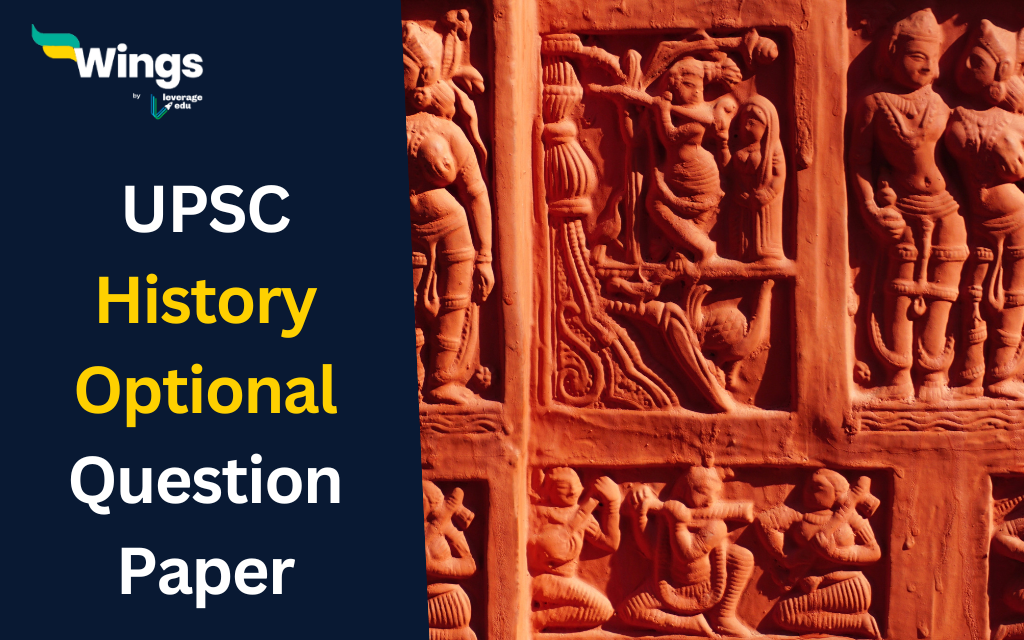Hey, guys! Mr. Owl 🦉 is here. I see that you want a ‘UPSC History Optional Question Paper’. Hootfully, I’ll be of help to you! Because we owls are extremely wise. If you continue reading this blog, you will find all of the information you require!
Aiming to become a high-ranking government official or a civil service officer, between 900,000 and 1,000,000 students take the UPSC exam each year. This exam consists of three stages: preliminary, mains, and interview. Every step involves the completion of multiple papers.
UPSC History Optional Question Bank (Section-Wise) 🏦
Did you know that questions on ancient, mediaeval, and modern history are frequently asked on the UPSC History Optional Question Paper? You might also get questions about art and culture in history. We targeted each of these sections separately and compiled a list of questions for each.
Ancient 📜
- What were the major features of the Harappan civilization?
- Discuss the main stages in the development of Vedic culture.
- What were the causes and consequences of the rise of Magadha?
- Discuss the Mauryan empire and its administration.
- What were the main features of the Gupta empire?
- What were the major contributions of the ancient Indians to science and technology?
- What were the main features of the ancient Indian social system?
- What were the major religions and philosophical traditions of ancient India?
Medieval 👑
- What were the main causes and consequences of the Muslim conquest of India?
- Discuss the Delhi sultanate and its administration.
- What were the main features of the Mughal empire?
- Discuss the Bhakti and Sufi movements.
- What were the main contributions of the medieval Indians to science and technology?
- What were the main features of the medieval Indian social system?
- What were the main reasons for the decline of the Mughal empire?
Modern 🌇
- Discuss the British conquest of India.
- What were the main features of the British colonial administration in India?
- Discuss the rise of Indian nationalism.
- What were the main events and leaders of the Indian independence movement?
- Discuss the partition of India and the creation of Pakistan.
- What were the main challenges facing India after independence?
- Discuss the economic and social development of India since independence.
Art and Culture 🖼️
- What are the main features of Indian art and architecture?
- Discuss the development of Indian classical music and dance.
- What are the main features of Indian literature?
- Discuss the influence of religion on Indian art and culture.
- What are the main features of Indian folk art and culture?
- Discuss the impact of British rule on Indian art and culture.
- What are the main challenges facing Indian art and culture today?
Must Read: UPSC Book List
History Optional UPSC Syllabus (Section-Wise) 📋
Check out the complete and updated History Optional UPSC Syllabus here-
UPSC History Optional Question Paper 📒🖊️
Sharing with you a couple of UPSC History Optional Question Paper(s) for your convenience-
2023
| Paper 1 | Click Here |
| Paper 2 | Click Here |
2022
| Paper 1 | Click Here |
| Paper 2 | Click Here |
2021
| Paper 1 | Click Here |
| Paper 2 | Click Here |
2020
| Paper 1 | Click Here |
| Paper 2 | Click Here |
“Kiddos, I’ve answered all your queries with the utmost precision that I was capable of. Now, I’ll be taking my leave, but if you think I might have missed something, do check out the FAQ section or drop a comment. I always respond!
Also Read: How to Prepare for UPSC 2024 at Home?
FAQs
If you’ve had history as a subject in your school or college degree you might not find it that hard to study. However, in case it’s your first time studying History in-depth, it can get a bit challenging.
It depends on your schedule, learning methodologies and ability to memorise.
Geography is one of the toughest optional subjects in UPSC.
Explore Related Posts
This was all about the “UPSC History Optional Question Paper and Question Bank”. For more such informative blogs, check out our UPSC Exams Section, or you can learn more about us by visiting our Indian exams page.


 One app for all your study abroad needs
One app for all your study abroad needs












 60,000+ students trusted us with their dreams. Take the first step today!
60,000+ students trusted us with their dreams. Take the first step today!